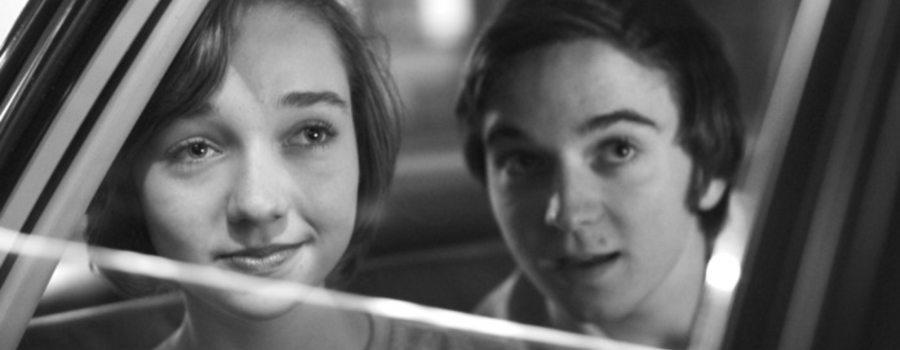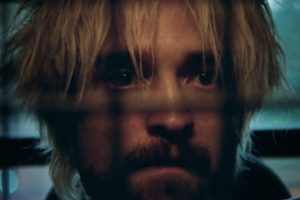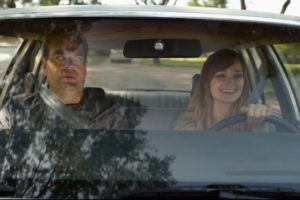 [Published at Awards Circuit] 2017 Berlin International Film Festival: “We are all weirdos. That’s what makes us beautiful.” This quote from the film, “Weirdos” by Bruce McDonald (“Pontypool,”Roadkill”) consummately encapsulates the main theme of this eclectic period piece. Set in 1976 Nova Scotia, Canada, on the cusp of America’s bicentennial, the film follows two days in the life of two teenagers who embark on a journey of self-discovery to Sydney, a beach town suburb of Nova Scotia situated on the east coast. Kit (Dylan Authors) and his girlfriend, Alice (Julia Sarah Stone), run away from their respective homes to escape Kit’s repressive father, Dave (Allan Hawco), to live with Kit’s mother, Laura (Molly Parker).
[Published at Awards Circuit] 2017 Berlin International Film Festival: “We are all weirdos. That’s what makes us beautiful.” This quote from the film, “Weirdos” by Bruce McDonald (“Pontypool,”Roadkill”) consummately encapsulates the main theme of this eclectic period piece. Set in 1976 Nova Scotia, Canada, on the cusp of America’s bicentennial, the film follows two days in the life of two teenagers who embark on a journey of self-discovery to Sydney, a beach town suburb of Nova Scotia situated on the east coast. Kit (Dylan Authors) and his girlfriend, Alice (Julia Sarah Stone), run away from their respective homes to escape Kit’s repressive father, Dave (Allan Hawco), to live with Kit’s mother, Laura (Molly Parker).
While hitchhiking across the fertile, rural landscape of Nova Scotia, Kit and Alice run into some friends who take them to a beach bonfire. This night would change both of their lives, and their relationship. As Kit struggles with coming to terms with his sexuality, he takes notice of another boy while ignoring Alice’s flirtation with an older guy. Both of them go their separate ways for the night. Alice realizes Kit’s truth, and, though angry for Kit’s dishonesty at first, she eventually understands and sympathizes, realizing it has been eating away at him inside. Their relationship strengthens; in being platonic, the two find out more about each others’ personalities and grow closer.
Kit’s father, Dave, is well-meaning, but uses offensive words towards homosexuals, not realizing the effect it has on his son. He lives with his mother, and the lifestyle they provided for Kit was not, to say the least, nurturing. The viewer comes to realize, upon Kit and Alice’s arrival at his mother’s beachfront property, that she cannot provide for him. Laura left Kit when he was younger to escape her home life and moved into an artist commune, having supposed connections to seminal artists such as Andy Warhol. This may seem like a blossoming opportunity for Kit to be himself, but Alice and Kit find out the hard way that his mother suffers from bipolar disorder.
The film is shot in a magnificently crisp black and white, italicizing its setting. What is truly astonishing, is that director McDonald somehow manages to make the audience forget that they are watching something void of color. In fact, the film is anything but colorless; McDonald uses a resplendent soundtrack, filled with Canadian folk tunes that characterized the 1970s, particularly the burgeoning feeling of American isolationism, which also reflected American folk music in sound and sentiment. Additionally, McDonald uses beautiful ambient noise of the Canadian east coast, filled with sounds of the flourishing, diverse ecosystem. One can succinctly hear wind whisking through the trees, crickets, birds, frogs and the crackling of branches. Topping all of this are the performances of the outstanding ensemble cast, which endearingly emulate the mawkish acting that represented the 1970s.
The two leads, Authors and Stone, pour their hearts out onscreen. One should keep an eye out for these two rising stars. Hawco as Dave offers a layered performance, evolving into a multi-dimensional character by the end of the movie. The performance that tops them all, however, is Molly Parker as the radiant but unhinged free-spirited mother, who put a lot of research into her role. Parker portrays mental illness with a sincerity that is often sorely missed onscreen; it is a penetrating, uncompromising look into the struggle of bipolar disorder. She is a result of the American counter-cultural movement of the 1960s and 1970s, which spread throughout Canada, a loyal ally to America over the years.
Another recurring theme is Canada’s desire to be like Americans. As director McDonald mentioned, for Canadians, it’s like living next door to the “cool kids.” Simultaneously, there is a growing detachment from America, as Vietnam has left a lasting impression on the world. We see another side of the story, a war that has affected millions across the world, not just those in Vietnam. America, as Independence Day ironically celebrates, was founded on war, death and colonialism, stemming from its United Kingdom roots. Laura’s landlord fled Cambodia after experiencing abuse and destruction of his country by American occupation of Vietnam. He expresses to Kit and Alice that America is not their country, and as such, they should not be celebrating a conflicted holiday. This sentiment is contrasted by programs that can be heard on radios and televisions throughout Kit and Alice’s adventure, as many Canadians appear to be entranced, watching America, and even the world, celebrate this bicentennial.
The film’s tone is light and comedic, speckled with moments of weighty emotional intelligence. The film’s main comic relief is Kit’s subconscious, his fictionalized version of Andy Warhol (Rhys Bevan-John in a hilariously spontaneous and infectiously giddy turn), who offers him philosophical insight into his internal battle to confront who he is without shame. He is the character that lingers over the course of the film, and is the one who spreads the message that everyone is weird, regardless of what they identify as. Kit thinks he’s a weirdo for being homosexual, but, in truth, he is no different than any of us. This concept provides insightful commentary of the absurdity of judgment because of labels; every person on this earth is wildly unique, different and downright strange. That alone is what makes humankind so similar. It is a simple concept, that, in theory, could bring the world together, but, thousands of years of prejudice and the unwillingness of humankind to shed its less-flattering animal instincts makes this, sadly, a fantasy – for now at least.
“Weirdos” is not a film to miss because of its realism, reflecting great directors like Roberto Rossellini, Vittorio De Sica and George A. Romero, all of whom Bruce McDonald is influenced by. McDonald has so much range as a director, it is unfathomable how he can shift from a fast-paced, brutal, genre-bending apocalyptic horror movie like”Pontypool,” to an intimate, quiet, little coming-of-age tale of two small-town teenagers. Humbly, he contributes this range in part to his frequent writing collaborators Tony Burgess (“Pontypool”), and playwright Daniel MacIvor, who wrote this film. McDonald has a passion for music and pop culture, and this can be seen throughout all of his directorial efforts, which often convey his singular cheekiness in a fluent, undemanding fashion. “Weirdos” is a small film with capacious, universal and pressing ideas and social commentary. America has a haunting past like most other countries founded on colonialism, undoubtedly. Yet, there is still so much decency and morality in the United States of America. Its progress may be nonlinear, like that of the world in general, but it will persevere. Though a period piece, this film is timely, and even urgent. Over 40 years after this movie takes place, there is a looming and impending doom that lies ahead for America, and if its citizens do not unite in this realization, and if they refuse to acknowledge history to ensure that it does not indeed repeat itself, then another Vietnam is unavoidable. McDonald and his diverse directorial style breathe a certain kind of welcoming life and realism into the world of cinema, and he continues to evolve his craft to refreshing new heights.
“Weirdos” is produced by Holdfast Pictures Inc., Lithium Studios Productions Inc., and Shadow Shows Inc. It debuted at the TIFF last year on Sept. 9, screening at the Berlinale on Feb. 14, and is currently seeking widespread distribution.
GRADE: (★★★)








Leave a Reply
Your email is safe with us.